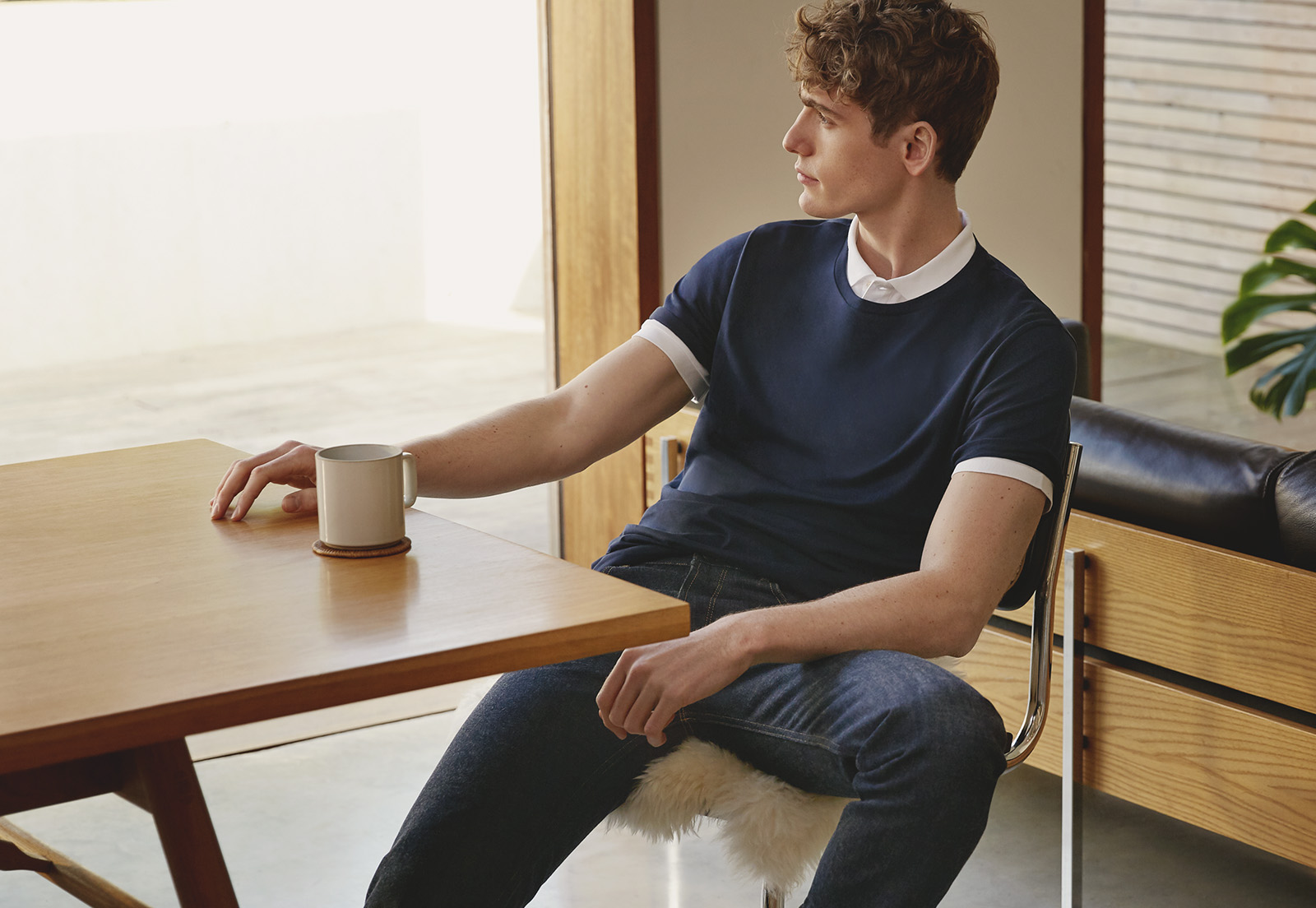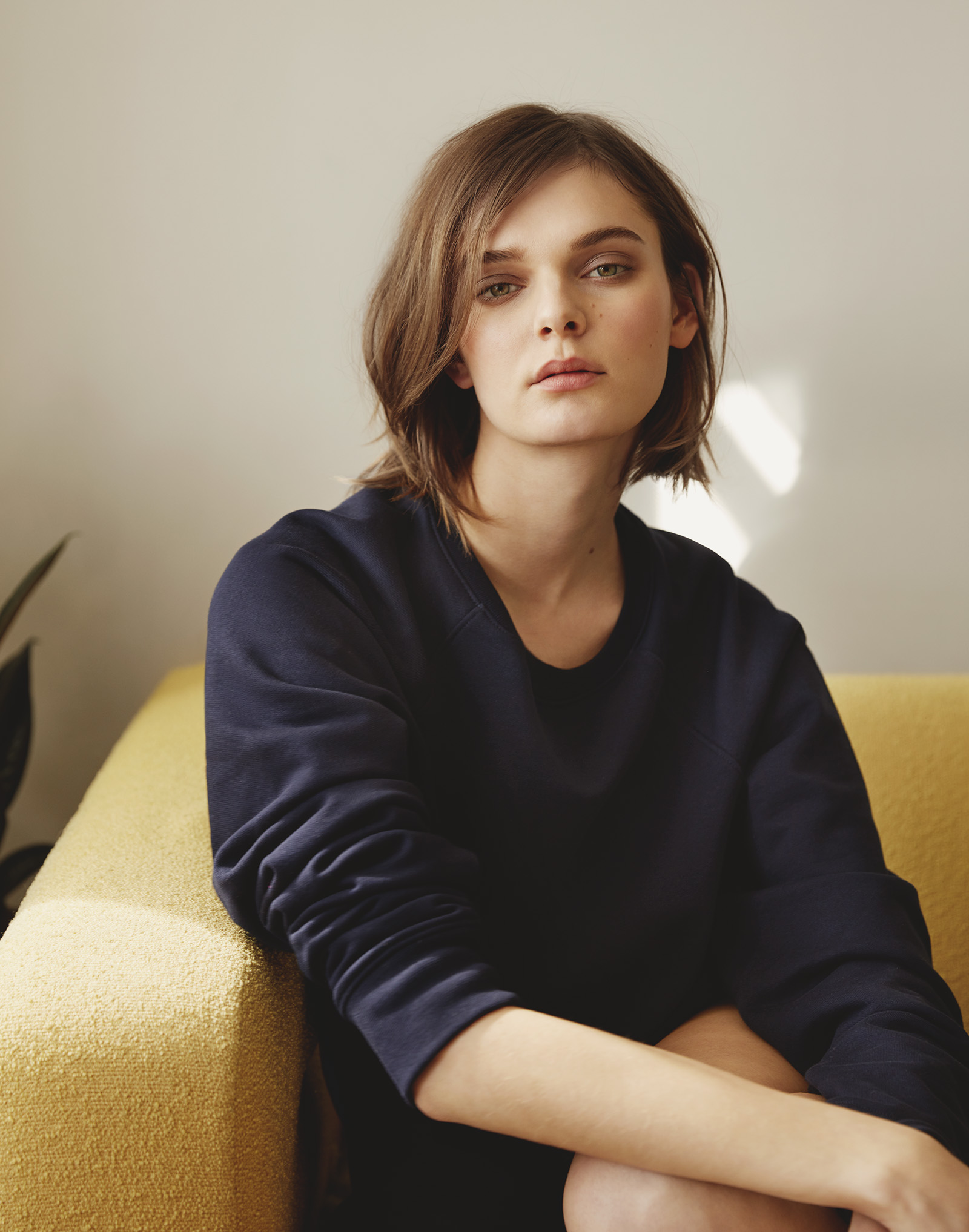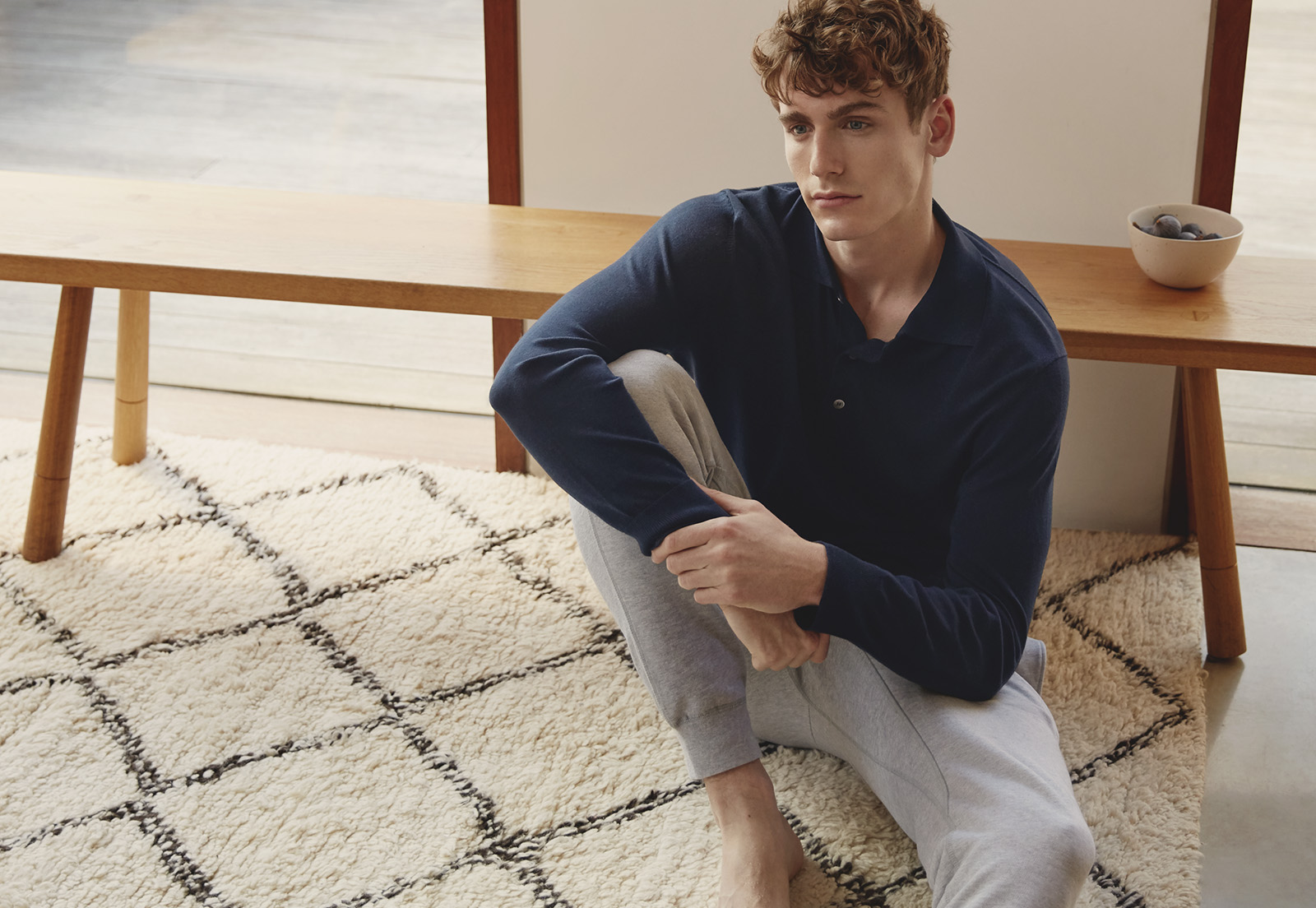We recently caught up with Esteban Saba—co-founder & managing director of minimalist artisan fashion brand håndværk—to talk fashion basics, thoughtful consumption, and the importance of quality.
Developing a minimalist design for fine fabrics is a unique market to become affiliated with. Why håndværk and what were your motives behind starting the brand?
We are a small, artisan label offering a thoughtfully curated collection of high-quality everyday essentials. Made from the finest natural materials and innovative fabrics, we specialize in the classics that form the backbone of a modern and timeless wardrobe.
We celebrate the ‘craftsman’, and proudly share in the understanding that making quality garments is a humble, and tedious endeavor, miles away from the hype of the fashion world.
My family has a deeply-rooted history in the textile and apparel industry, which extends over a century. After my career in investment banking, there was a natural draw for us to start a label that specialized in this niche segment of the market.
Our sense is that there are a lot of talented designers that are working to make their mark, and for that reason tend to over design—they have something to prove. We like to keep things simple. Our label is about exercising restraint, from branding to product design with a single-minded focus on important details that set our products apart.
We want to provide a high-quality product grounded on sourcing the finest materials and a differentiated manufacturing process—minimalism is a pure avenue as we are not keen on imposing a certain style upon the individual.
Håndværk appeals to minimalists through the brand’s clothing range. What is your most popular item and why do you think that is?
Our most popular items are our Pique Polo Shirts, and the Flex Sweats Series. These items do well because of their multi-functional nature. The Polo shirt is a casual piece that works extremely well as per of your off-duty roster, but given the visible quality difference it works equally well if you wear it to work or dinner.
The Flex Series Sweats are somewhat similar in that nature—they are so comfortable and soft that are perfect as a lounge piece but elevated enough to be worn to brunch or the gym.

Håndværk design perfect basics, using very high-quality materials from Peru. Why do you think minimalism enthusiasts or those looking to adopt a minimalist lifestyle should invest in premium garments rather than inexpensive high street brands?
Simply put we believe that it is best to buy less but better. We produce for the one that is truly thoughtful when investing in a product and appreciates the rigorous process required for high-quality manufacturing.
Thoughtful consumption has positive implications to the environment which is impacted by the manufacturing process and also the disposal of goods.
Imagine the impact on your quality of life, a closet packed full of low quality pieces vs. a handful of pieces that you actually want to wear… sort of a uniform.
Can you tell us of any challenges håndværk has faced when developing minimalist products into the global market?
Launching any sort of brand is full of challenges, figuring things out along the way is part of the excitement. Key is to understand your customer base, in essence your market. The other key component has to do with understanding what sets you apart, and making sure that you stick to your knitting, and not to try to be everything to everyone. Everyone is not going to like what you are doing, but that is fine.
Håndværk publishes newsletters along with journals on its website, illustrating inspirational minimalism from designers such as Dieter Rams and brands like Instrmnt. How important are these features in relation to customer interaction?
We tend to cover topics that are of interest to the team; we have a natural bias for features that touch on minimalism, which basically solidify the vision around the lifestyle. We believe that the key is to expand beyond the view that minimalism is only about aesthetics, and try to bring a more holistic understanding of what minimalism stands for—a viable option of how to go about life.

Håndværk was founded in 2013. Now the collections are available to a worldwide audience from New York to Tokyo. How do you see your brand evolving further?
We are a specialized brand, focused on the basics, therefore, we will maintain that focus going forward. We are working to continue to expand our wholesale business with the right partners, as it affords us the exposure needed for a small brand. We want to position håndværk as the go to brand for high quality basics with our retail partners.
As you mentioned, we have nice exposure in Japan, and in the U.S. and we would love to continue to expand in Europe. Today, in the U.K., Mr. Porter is our key partner; it would be great to expand into independent stores in the region as well.
We take a measured approach to our expansion.
Petra and I have been discussing opening up a small flagship store in NYC—there are no formal plans for it yet, but we feel it would be a great way to more holistically convey our vision. Everyone is quick to point out the perils of brick and mortar retailing, but we believe that if done the right way, it could help us build the brand.

The Minimalists and artists such as Dan Flavin have sparked popularity into the ‘quality over quantity’ ideology amongst global society. Why do you believe this theory has captured the imagination of people around the world today?
I feel that the ideology of ‘quality over quantity’ is truly in the early stages—it has captured the imagination of a small number of people. People are starting to better understand that a lot of mediocre things (or people) around actually takes away from your quality of life, in a way, it pollutes your day to day.
But I am not sure it will ever have a wide appeal. We are overwhelmed by a consumer culture, in the U.S. specially—fast fashion as an example… it feels like everything is over-hyped.
Personally, I need clean spaces, with a limited number of well thought-out pieces—in my life and work—otherwise, my brain simply cannot function.
During your experience with Håndværk, can you name three key recommendations to start-ups with minimalist aesthetics?
- Fire the “designer”.
- Stay true to your vision.
- Don't chase, chart your own path.